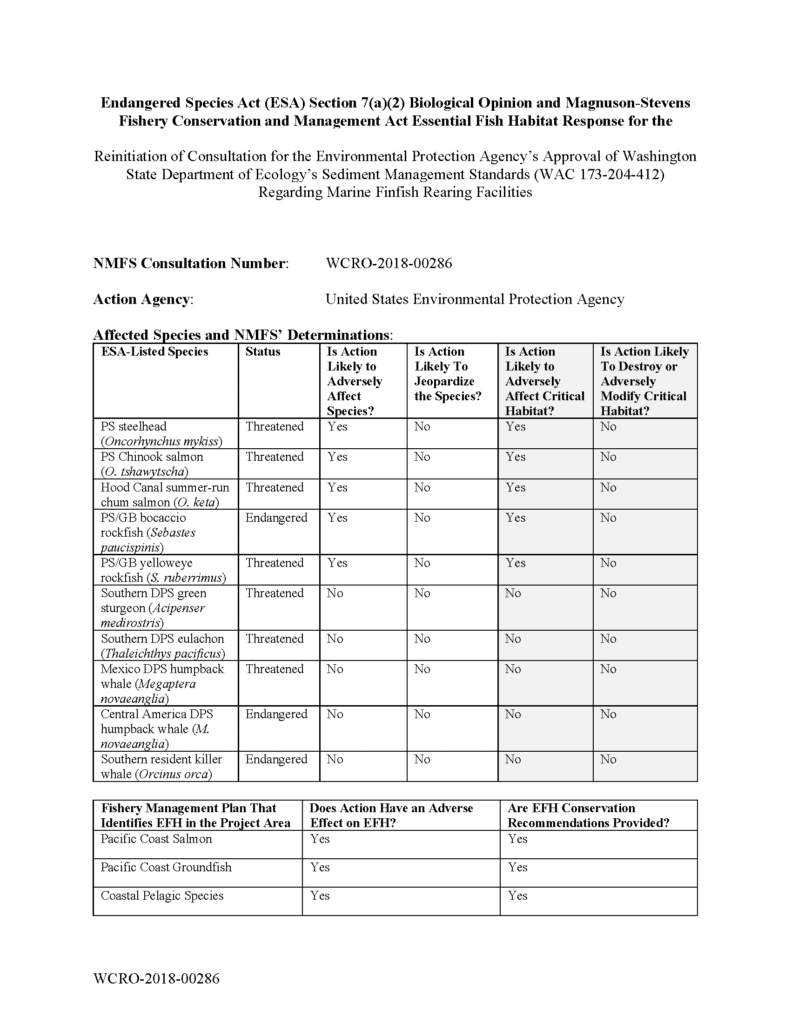
Description |
|---|
On February 16, 2022, NOAA Fisheries released a biological opinion analyzing impacts of commercial marine net pen aquaculture in Puget Sound to species listed under the Endangered Species Act (ESA). The biological opinion found open water net pens in Puget Sound are adversely affecting ESA-listed salmon, steelhead, and other protected fish species and their habitats, and that take of ESA-listed species was reasonably and likely to occur from a variety of mechanisms including but not limited to:
Wild Fish Conservancy has been arguing through the Courts beginning in 2005 that NOAA Fisheries and the Environmental Protection Agency were required to reinitiate consultation under the Endangered Species Act and conduct a comprehensive biological opinion due to various catastrophic escape and pathogen outbreak events and the growing scientific record of harm. Finally, in 2018, following a massive collapse of a net pen in Puget Sound that released 260,000+ nonnative Atlantic salmon infected with an exotic virus, WFC was successful in this legal pursuit and NOAA and the EPA agreed to prepare the biological opinion. Until this point, the agency’s opinion was that net pen aquaculture was not likely to adversely affect any ESA-listed species in Puget Sound. |
File Attachment |
|---|
Download |